Alumni will go on to successful careers in:
- Private sector STEM positions
- Civilian government STEM positions
- High school teaching
- Technical writing
- Forensic science
- Meteorology
- Active military
- College or university faculty
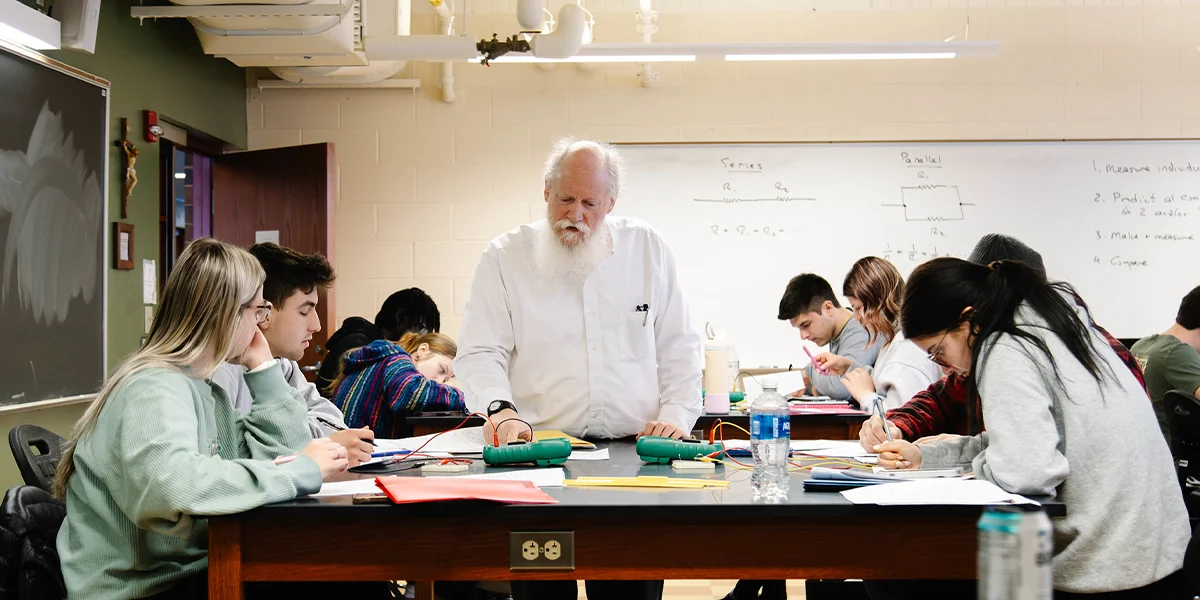
The physics program emphasizes conceptual understanding of fundamental theoretical fields through discussion and demonstration while developing experimental skills through laboratory and research projects. It introduces the principles and techniques of research for the discovery of new physical principles and prepares students for graduate studies in physics and related fields, technical roles in government labs, and industry positions. Saint Vincent College's physics program offers a rigorous curriculum with personal attention, excellent resources, and faculty support. Physics graduates succeed in various paths, including graduate school, private and government labs, law enforcement, and many more.
In the physics program at Saint Vincent College, you can expect to:
Phone:
800-782-5549
Ext. 2500
Email:
admission@stvincent.edu
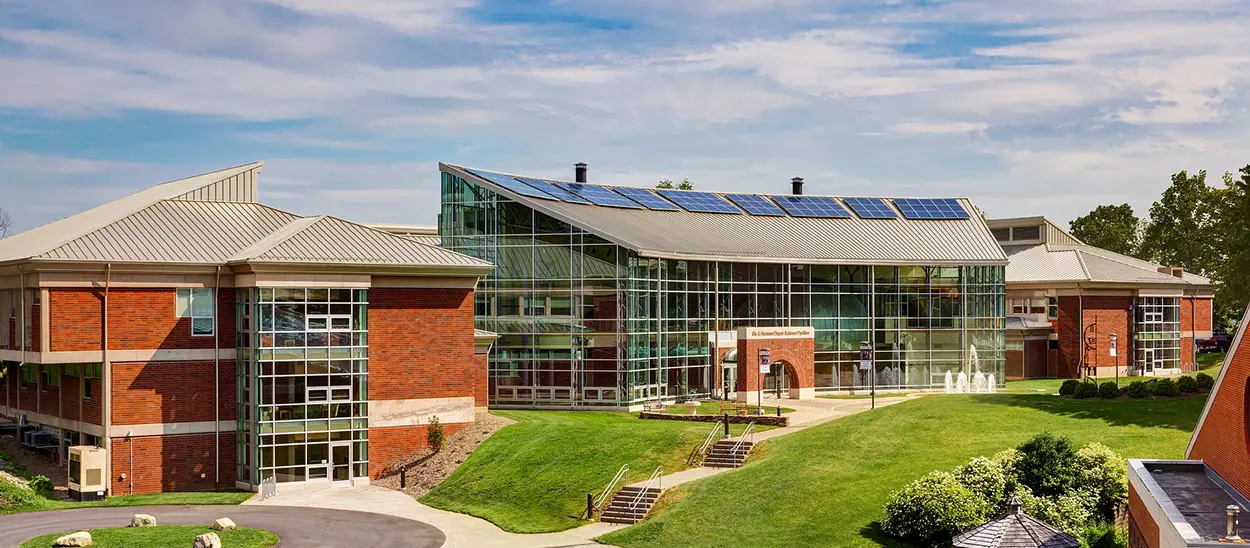
The physics program and laboratories are housed in the Sis Herman Dupré Science Pavilion. Examples of state-of-the-art equipment include an observatory with a Celestron Edge HD 14-inch telescope, a planetarium, an electronics fabrication laboratory with a CNC mill and 3D printers, and a research-grade optical interferometer, all of which are available for student use in the classroom and for individual research projects.
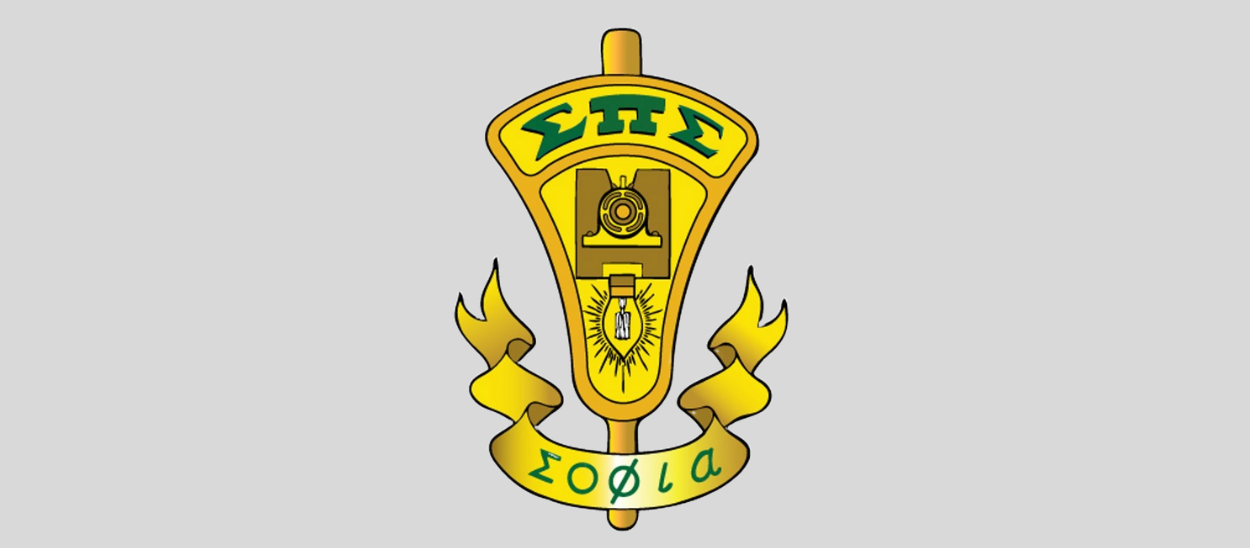
The Saint Vincent Physics Club is nationally recognized as a "Notable Chapter" of the Society of Physics Students. The club hosts a section of Sigma Pi Sigma, the Physics Honor Society, which recognizes excellence in physics and astronomy, encourages student interest, promotes service, and fosters fellowship among top scholars. Sigma Pi Sigma membership is lifelong and includes a complimentary year in the Society of Physics Students.
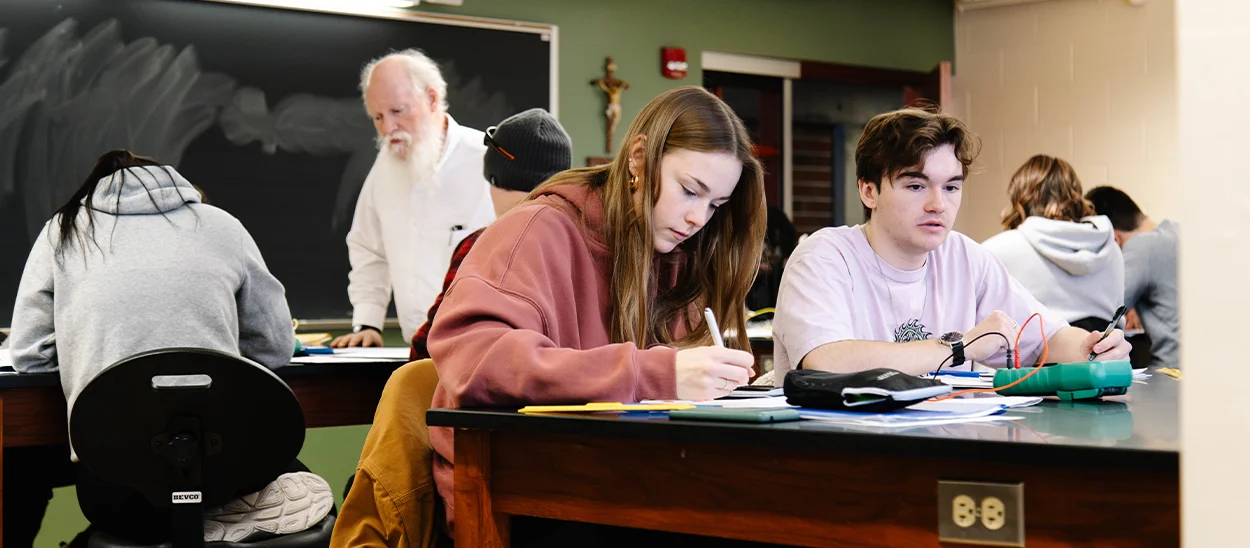
The Society of Catholic Scientists fosters fellowship among Catholic scientists and demonstrates the harmony of faith and reason which aligns with our Catholic, Benedictine curriculum. The Society hosts conferences, lectures, and provides educational resources.
In addition to graduate programs and academic research, a BS in physics at Saint Vincent College opens a world of possibilities in numerous lucrative career paths.
Alumni will go on to successful careers in:
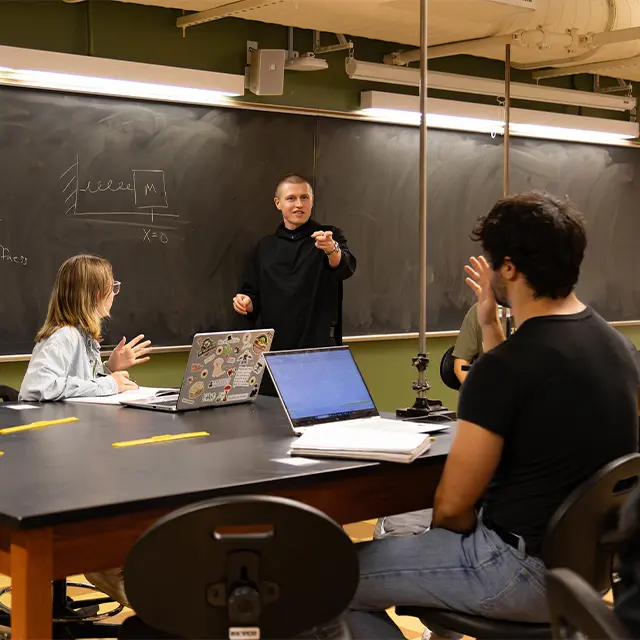
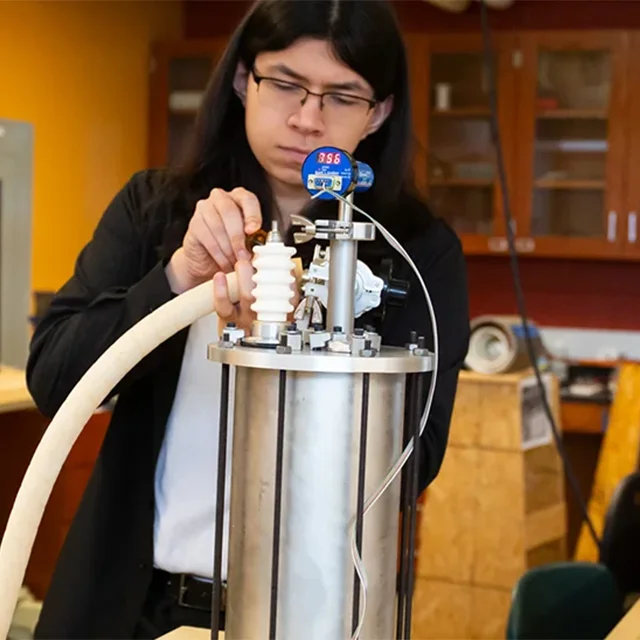
Our students have secured jobs and internships at a variety of companies in their field and enrolled in prestigious graduate schools

“Since I'd been working with the cosmic ray shower detector at SVC, I applied to the Research Experiences for Undergraduates program at Notre Dame before my senior year to research what's being done with larger scale detectors. The knowledge that I had gained from using the detectors and completing data analysis at SVC gave me an upper hand while I was doing the research at Notre Dame. It was nice to know that all the work I'd done over the last three years at Saint Vincent really paid off.”

"The physics department is unique. The faculty are active and interested in our research; they push us academically, but they also understand the heavy workload of studying physics -- and there are few other places you can learn physics from a Benedictine monk. We students help each other, and have lively discussions about physics and beyond."
The physics major is part of the Herbert W. Boyer School of Natural Sciences, Mathematics, and Computing and is supported by our core curriculum, where students delve into diverse academic subjects at both foundational and advanced levels to explore how different disciplines connect, fostering deeper self-understanding and proficiency in their chosen field of study.
Our physics curriculum is rich in laboratory experiences and provides a broad-based perspective on the fundamental principles of physics while allowing for independent study of topics of interest to the individual student. We introduce principles and techniques of research for the discovery of new physical principles.
Major Requirements - 68 credits
Minor Requirements - 19 credits
Required courses (8 credits)
Elective courses (11+ credits)
Our BS physics program includes several upper-level courses that are not often available in other physics programs, especially at a small, liberal arts and sciences college, including:
Optics: In this course, students will study the basic principles of physical optics using a laboratory that includes lenses, mirrors, and prisms, as well as reflection, refraction, polarization, interference, diffraction, and holography.
Electronics: This is a highly hands-on course in the fundamentals of electronic principles which introduces students to the design and fabrication of printed circuit boards, one of the fundamental technologies on which much of our modern society depends.
Condensed Matter Physics: This course explores the fundamental concepts of condensed matter physics, including crystal structure, x-ray scattering from crystals, (Bragg scattering), lattice vibrations and their quantization, the origin of the heat capacity of solids, and an introduction to nuclear magnetic resonance spectroscopy.
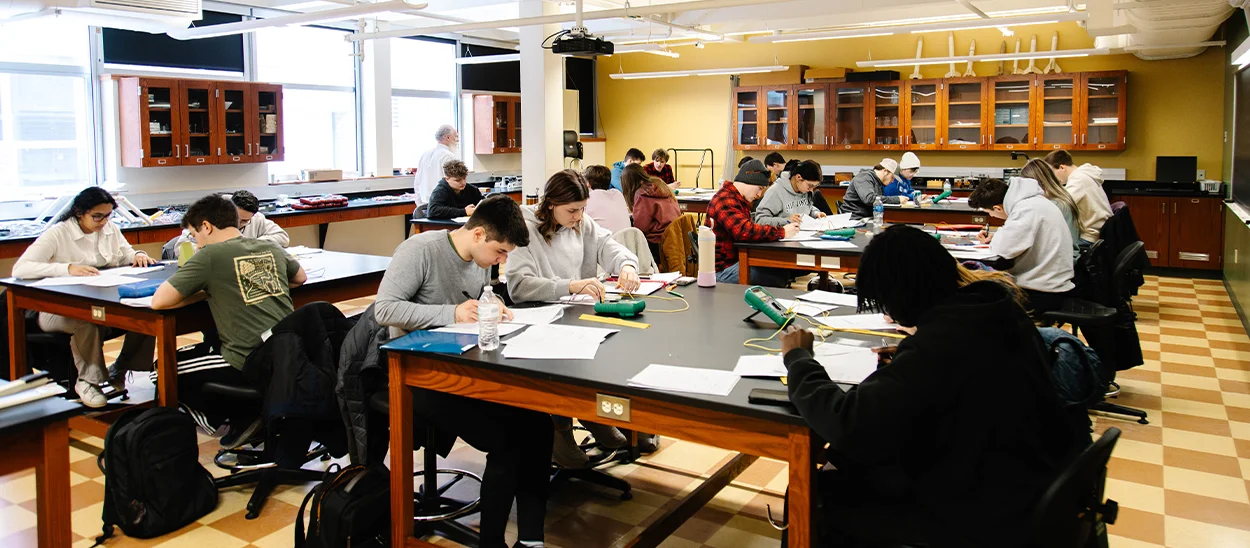
The Collaborative Learning Program, inspired by our Benedictine hallmark of community, is designed to enhance your learning experience by fostering interaction with knowledgeable upperclassmen and fellow classmates. In this program, you'll exchange ideas in a relaxed setting with a tight-knit group, which helps deepen your understanding and insight into course content.
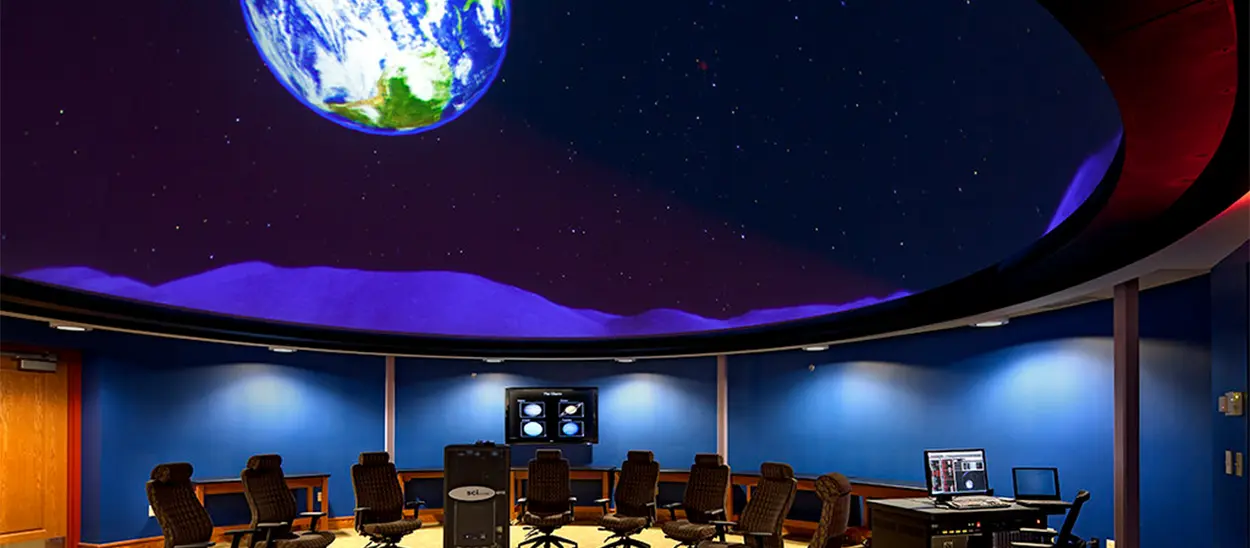
Students develop lessons and present shows at the Angelo J. Taiani Planetarium and Astronaut Exhibit which provides a captivating journey through the cosmos, regularly offering shows that are developed and presented by current students.
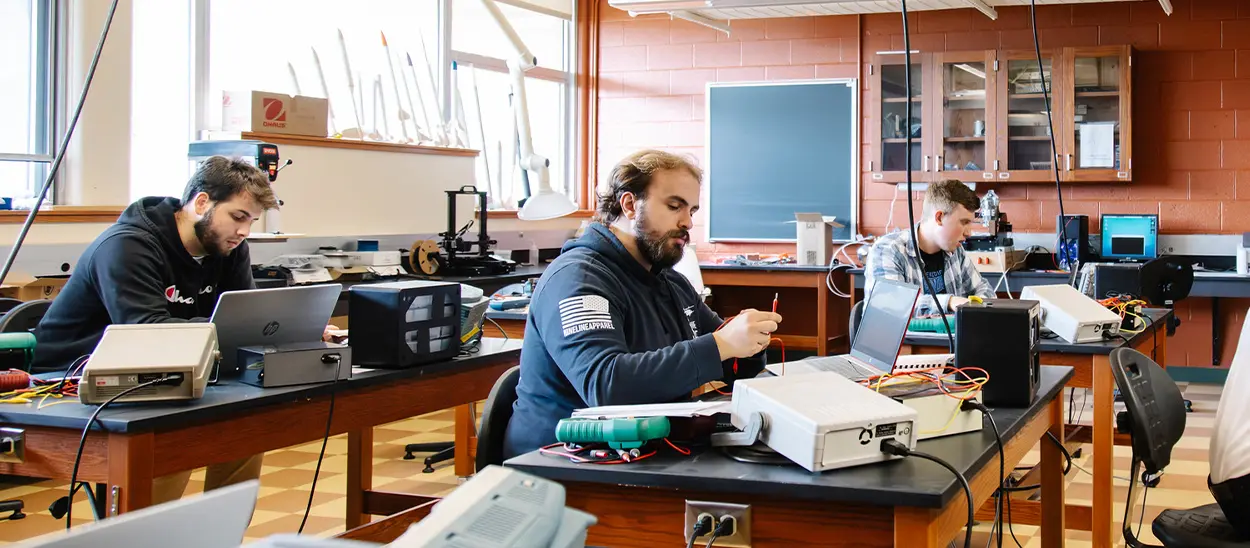
Laboratories include a Machine Shop, where students can fabricate equipment from metal and wood; an Electronics Laboratory, equipped with test and measurement tools, prototyping supplies, printed circuit board fabrication capabilities, and 3D printing resources; and a Student Research Laboratory, dedicated to providing space for students to conduct their own research projects.
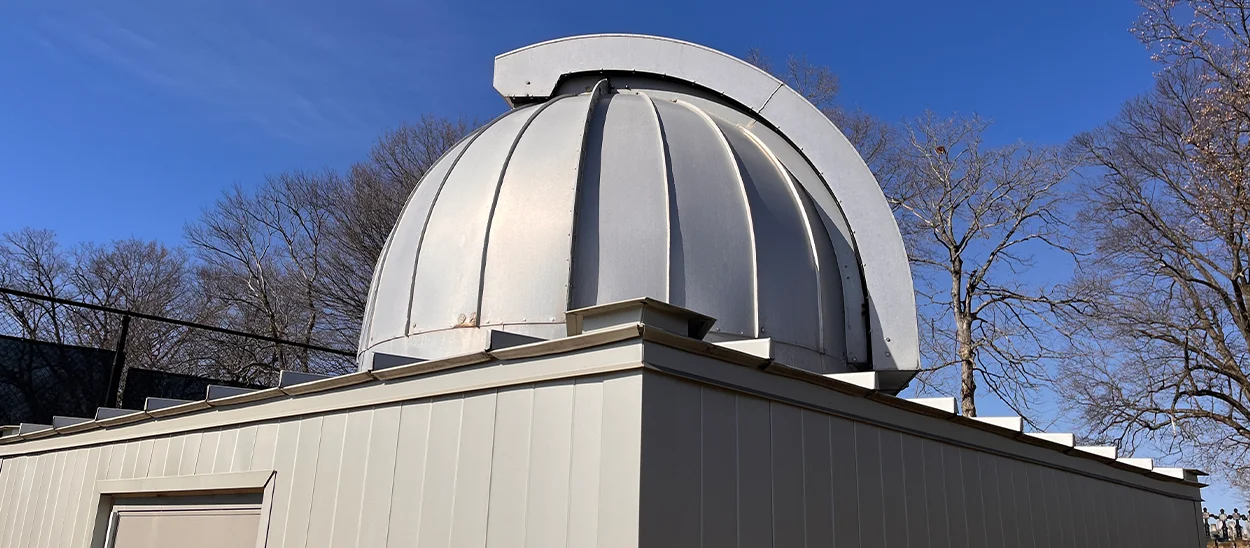
The Observatory is used for research and is equipped with a Celestron EdgeHD 14-inch telescope with computer control, imaging cameras and filter sets, and a spectroscope, all of which are utilized for observational astrophysics experiments.
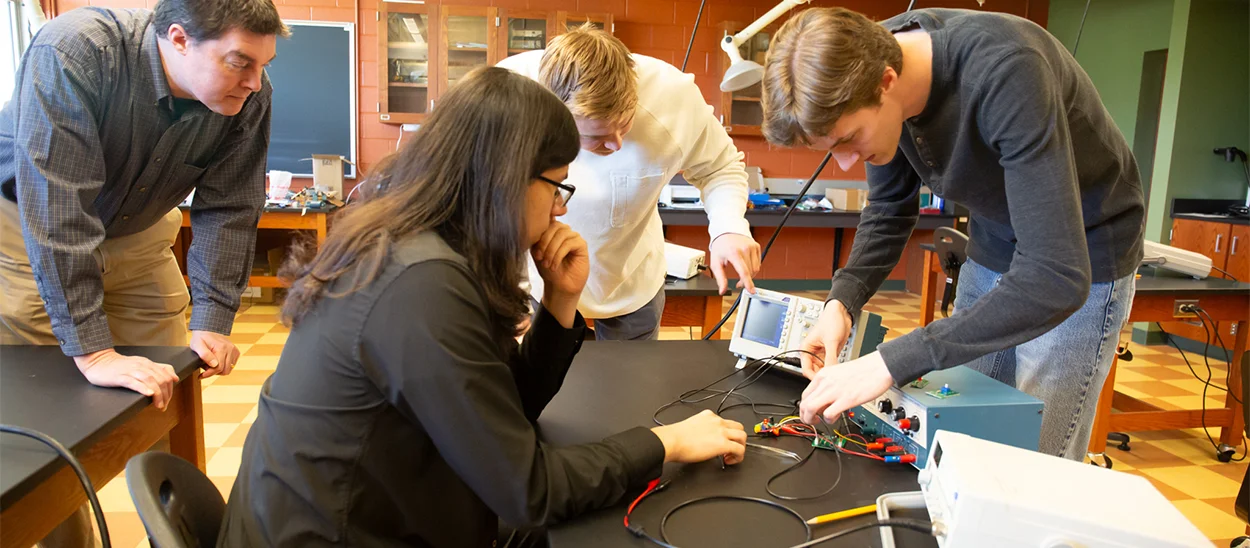
The student-built Cosmic Ray Detection Array supports several student research projects and provides cosmic ray shower data. The faculty/student-constructed Nuclear Magnetic Resonance (NMR) apparatus allows for detailed analysis of molecular structures, dynamics, and interactions by measuring the magnetic fields around atomic nuclei.
Phone:
800-782-5549
Ext. 2500
Email:
admission@stvincent.edu